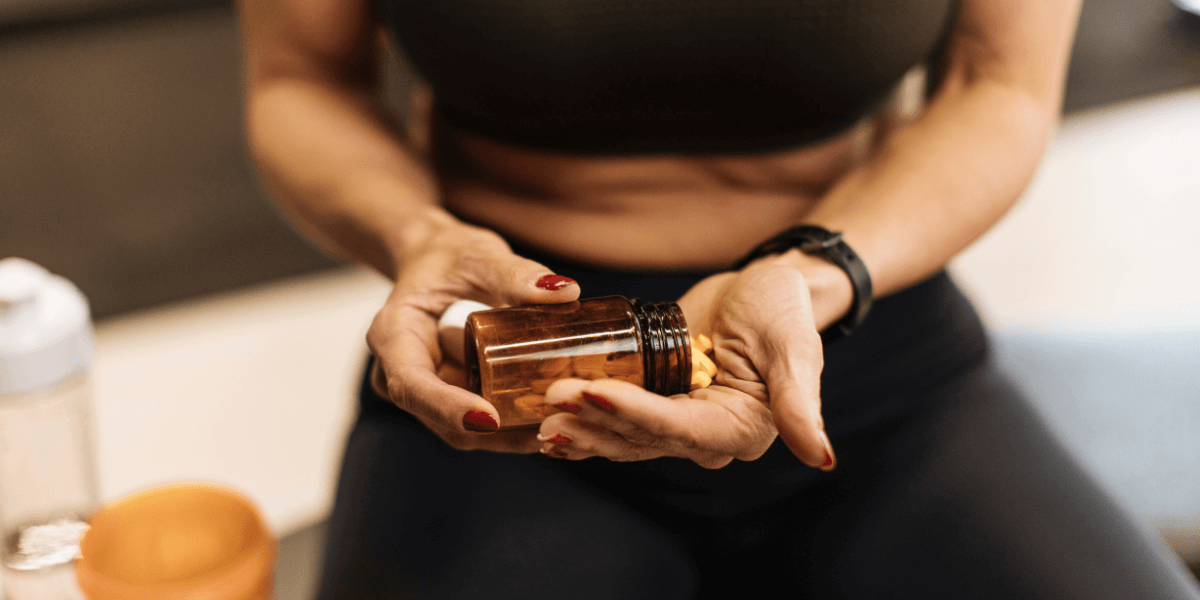6 Practical Tips to Reduce Cardiovascular Risk
Coronary heart disease is the leading cause of death in the United States — in both men and women. While men tend to worry about cardiovascular risk...
.png?width=70&height=70&name=Stark_LogoMark%20(1).png)
What is the first thing that comes to mind when you hear that someone has high cholesterol? High risk for heart disease and stroke! But what if you found out the lipid panel your doctor runs during your annual check-up isn't an accurate indication of whether or not you have a healthy heart? Would that make you want to learn more about cholesterol and how to accurately test for cardiovascular risk? If the answer is “yes,” then this article will provide you with some of the information you need to take control of your health and fitness.
We often associate cholesterol something that has a negative effect on our health; however, cholesterol in and of itself has a positive role our bodies because it helps build healthy cells and aids in producing hormones, vitamin D, and substances that help digest foods. But just like most things in life, too much of a good thing can prove to be problematic, even excellent things can, in excess, be terrible for you. Although cholesterol, when in a healthy range, does great things for our bodies, extremely high levels can be related to the development of fatty deposits in your blood vessels, which then can be a precursor to coronary artery disease (CAD).
If you know the basics about cholesterol, then you’ve likely had conversations with your doctor about whether or not you have healthy levels of the “good” or “bad” cholesterol (aka HDL-C and LDL-C, respectively). Most doctors test cholesterol at least every five years starting at the age of 20; more often if you have a family history of high cholesterol. It is an important preventive measure to check your cholesterol levels when you are young since atherosclerosis (clogging of the arteries) is a gradual process that takes many years to happen. That is why it is crucial to make sure to get a thorough lipid panel test to measure cardiovascular risk. Most doctors run a basic panel that includes the following markers: total cholesterol, HDL-C, LDL-C, triglycerides, and non-HDL cholesterol. However, testing just those factors does not necessarily paint a clear picture of your cardiovascular risk factors.
A study conducted in 2009 analyzed over 135,000 people who were hospitalized with coronary artery disease. About 50% of those hospitalized from suffering a heart attack or stroke, were found to have “normal” cholesterol levels.¹
I repeat… 50% of those who suffered a heart attack or stroke had cholesterol levels within a healthy range! Something just doesn't seem to add up when reading this study… If high cholesterol is one of the top causes of atherosclerosis, and atherosclerosis is what causes coronary artery disease, then you would expect more than half of the stroke and heart attack victims to have high cholesterol. How many patients have even questioned the validity of these lipid panels for measuring cardiovascular risk?
At Stark, our doctor on staff, Alice Nguyen ND, believes there is a more efficient way to measure cardiovascular risk. The lipid panel she runs at Stark not only tests the measurements mentioned above, but she also tests hsCRP, apolipoprotein B and A1, small-dense LDL, and HDL2B. You may have never even heard of those, let alone had them tested. If you have, fantastic! Your doctor knows what he/she is doing. If not, then the following will help clear up the risk factors that you/your doctor should be paying attention to.
Inflammatory biomarker high-sensitivity C-reactive protein (hsCRP) is considered to be a major predictor of cardiovascular events, and apolipoprotein B directly reflects the number of plasma atherogenic lipoproteins and may play a major role in vascular inflammation. Having a more accurate picture of your cardiovascular health is crucial, so at Stark, we believe including these additives to our lipid panel test is the most effective way to keep our clients healthy. Along with getting tested routinely, there are other complementary tools used to reduce cardiovascular risk.
A natural way to help reduce cardiovascular risk is eating olive oil! Our bodies produce all the cholesterol that we need to stay healthy. But when our LDL cholesterol or “bad cholesterol” starts to increase into the high ranges, it leads to a buildup of the plaque in our arteries. But olive oil can help lower your LDL levels! It also helps maintain and sometimes increase HDL or “good cholesterol”. One study done on the effects of olive oil on cholesterol had hypercholesterolemic individuals consume 25ml of olive oil per day for 3 weeks with the results showing a positive improvement in HDL levels.² Other research suggest that olive oil can have other positive effects including reduced oxidized LDL (“bad” cholesterol), improved blood sugar markers, and decreased inflammatory markers! Isn’t it amazing that the simple act of eating a little bit of olive oil can have such profound effect on the body! Next time you are in the kitchen, add a little drizzle of olive oil to your meal to keep your heart healthy and cholesterol levels in check!
Hopefully by now you are aware of the risks associated with high cholesterol (particularly certain types of cholesterol). So it seems reasonable to conclude that lower cholesterol is better, right? And If you ask most people that question, they will answer with a resounding “yes.!” However, there is some research suggesting that cholesterol levels that are too low can actually put you at greater risk! A recent study measured cholesterol levels in women to see if there was a correlation between cholesterol levels and the risk of hemorrhagic stroke. And the results showed that for women with LDL (“bad” cholesterol) levels below 70 mg/dl had over 2X HIGHER risk of suffering a hemorrhagic stroke! Yet, many Americans are prescribed cholesterol-reducing medications, often times bringing cholesterol levels below what would be considered a healthy range. So in conclusion, having more of the “good” cholesterol or having less of the “bad” cholesterol will not necessarily save you from coronary heart disease or a stroke. That is why we encourage everyone to work with a doctor that will take a comprehensive look at your cardiovascular health the way our very own, Dr. Alice, does!
References:

Coronary heart disease is the leading cause of death in the United States — in both men and women. While men tend to worry about cardiovascular risk...

“Rats will work for sugar water the same way they will work for cocaine. We need to take addictions seriously.” Dr. Daniel Amen

While the position we take at Stark is that the majority of an individual’s nutrition should come from eating food, the goal of getting everything...